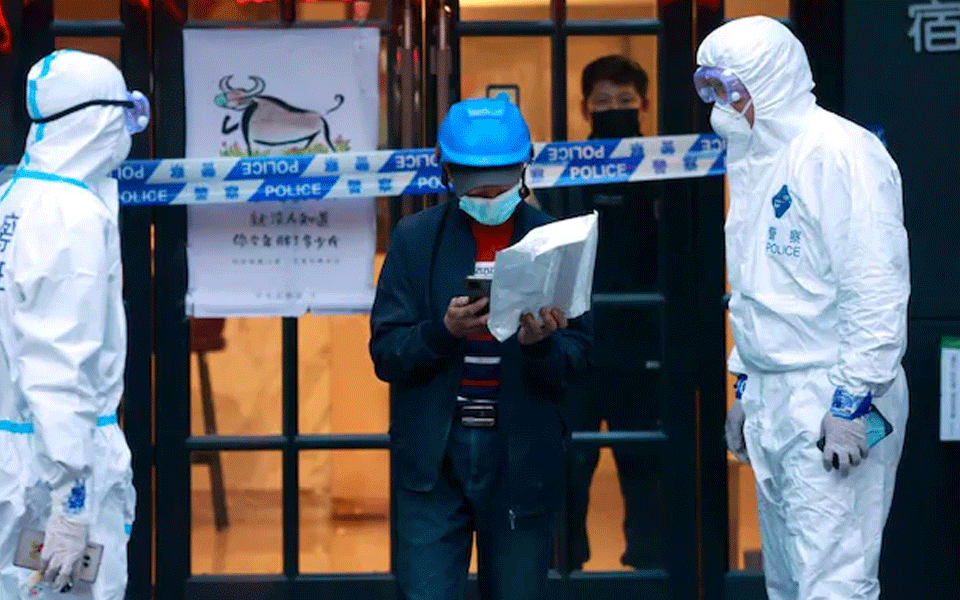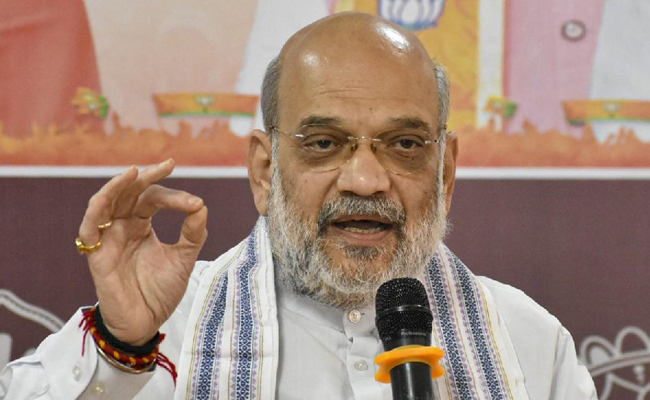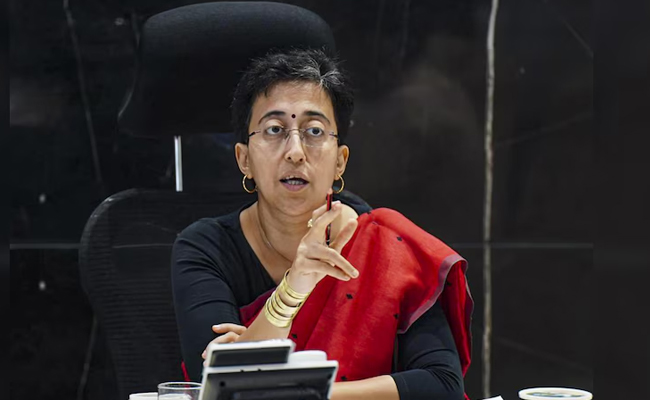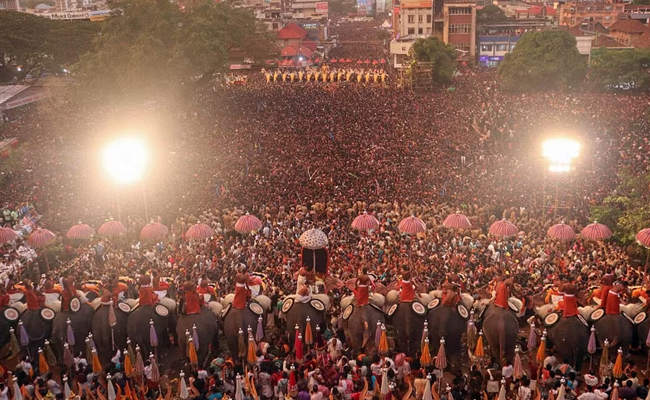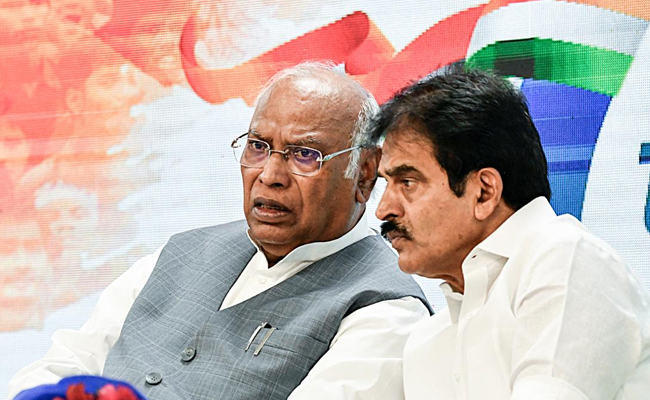Beijing (AP): Anti-virus controls that are confining millions of Chinese families to their homes and shut shops and offices are spurring fears of further damage to already weak global business and trade.
The ruling Communist Party promised on Nov 11 to reduce disruptions from its "zero- COVID" strategy by making controls more flexible. But the latest wave of outbreaks is challenging that, prompting major cities including Beijing to close off populous districts, shut stores and offices and order factories to isolate their workforces from outside contact.
On Tuesday, the government reported 28,127 cases were found over the past 24 hours in areas throughout China, including 25,902 with no symptoms.
China's infection numbers are lower than those of the United States and other major countries. But the ruling party is sticking to "zero COVID," which calls for isolating every case, while other governments are relaxing travel and other controls and trying to live with the virus.
Global stock markets fell Monday as anxiety about China's controls added to unease about a Federal Reserve official's comment last week that already elevated US interest rates might have to rise further than forecast to cool surging inflation.
Investors are "worried about falling demand as a result of a less mobile Chinese economy amid fears there will be more COVID-related lockdowns," Fawad Razaqzada of StoneX said in a report.
China is the world's biggest trader and the top market for its Asian neighbours. Weakness in consumer or factory demand can hurt global producers of oil and other raw materials, computer chips and other industrial components, food and consumer goods. Restrictions that hamper activity at Chinese ports can disrupt global trade.
Economic growth rebounded to 3.9% over a year earlier in the three months ending in September, up from the first half's 2.2%. But activity already was starting to fall back.
Retail spending shrank by 0.5% from a year earlier in October, retreating from the previous month's 2.5% growth as cities re-imposed anti-virus controls. Imports fell 0.3% in a sign of anemic consumer demand, a reverse from September's 6.7% rise.
Chinese exports shrank by 0.7% in October after American and European consumer demand was depressed by unusually large interest rate increases by the Fed and other central banks to cool inflation that is at multi-decade highs.
Guangdong province, an export-oriented manufacturing powerhouse that is the latest infection hot spot, recorded 9,022 new cases on Tuesday, or almost one-third of the national total. That included 8,241 without symptoms.
On Monday, the government of the provincial capital, Guangzhou, suspended access to its Baiyun district, home to some 3.7 million people, following outbreaks there.
Guangzhou announced plans last week to build quarantine facilities for nearly 250,000 people. It said 95,300 people from another district, Haizhu, were being moved to hospitals or quarantine.
The government of Shijiazhuang, a city of 11 million people southwest of Beijing, said factories that want to keep operating must impose "closed-loop management," the official term for employees living at their workplaces. That imposes extra costs for food and living space.
Businesspeople and economists see the changes in anti-virus controls as a step toward eventually lifting controls that isolate China from the rest of the world. But they say "zero COVID" might stay in place until as late as the second half of next year.
Entrepreneurs are pessimistic about the outlook despite government promises of less disruptive anti-virus measures, according to a survey by Peking University researchers and financial company Ant Group Ltd. It said a "confidence index" based on responses from 20,180 business owners fell to its lowest level since early 2021.
The ruling party needs to vaccinate millions of elderly people before it can lift controls that keep out most foreign visitors, economists and health experts say.
"We do not think the country is ready yet to open up," said Louis Loo of Oxford Economics in a report. "We expect the Chinese authorities will continue to fine-tune COVID controls over the coming months, moving toward a broader and more comprehensive reopening later."
Let the Truth be known. If you read VB and like VB, please be a VB Supporter and Help us deliver the Truth to one and all.
New Delhi (PTI): Union Home Minister Amit Shah on Monday said the fight against terrorism, infiltration and conspiracy to create religious tension will continue even though the country has established relative peace in Jammu and Kashmir, the Northeast and Naxal-affected areas.
Addressing a function here on the occasion of Police Commemoration Day, Shah said the sacrifice of police martyrs will not go in vain and the country will definitely become a fully developed nation by 2047.
“In the last 10 years, relative peace has been established in Jammu and Kashmir, the Northeastern region and LWE-affected areas. However, our fight is not over. We will continue to fight against narcotics, cybercrime, conspiracy to create religious tension, infiltration, and terrorism among others which continue to pose challenges to us,” he said.
The home minister said since independence, 36,438 police personnel have laid down their lives for the safety and security of the country, with 216 of them in the last year.
He said the country will remain forever grateful for their sacrifice in the country’s development journey.
“I want to assure the family members of the martyrs that their sacrifice will not go in vain. The country will remain safe and achieve its goal despite any challenge which may come in the way and India will definitely become a developed nation by 2047,” he said.
Referring to the three new criminal laws, which came into force on July 1, Shah said work to establish the infrastructure for the implementation of the new laws had started five years ago and the remaining work will be completed in the next three years.
“I want to tell the country that India’s criminal justice system will be the most modern in the world and full justice up to the Supreme Court could be delivered within three years of the registration of an FIR,” he said.
Giving details about the steps taken for the welfare of the police personnel, the home minister said the police personnel and their family members can now avail treatment in any Ayushman hospital after the implementation of the ‘Ayushman CAPF’ scheme.
To enhance the housing satisfaction of the CAPF personnel, he said approval has been given for the construction of 13,000 houses of which 11,276 will be ready by March next year.
The Police Commemoration Day function was held at the National Police Memorial here.
Before his speech, Shah paid floral tributes to all police personnel who laid down their lives in the line of duty.
On October 21, 1959, 10 policemen died in the line of duty during an ambush laid by heavily armed Chinese troops at the Hot Springs in Ladakh. Since then, every year October 21 has been observed as Police Commemoration Day to honour these martyrs and all other police personnel who died in the line of duty.

